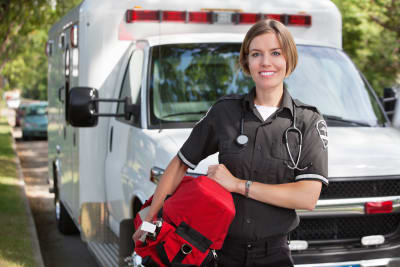Dental assistants enjoy a relatively straightforward path into the world of healthcare. Their requirements are less stringent than most careers, and the job offers immense opportunities to acquire knowledge and grow.
After successfully becoming a dental assistant, it is also advisable to begin getting certified, as this additional step offers many benefits.
For one, a certified dental assistant is considered sound enough to perform required tasks at a high level. Secondly, certification shows dedication and commitment, two traits employers always seek.
Getting Certified as a Dental Assistant
To become a dental assistant, you must first complete an accredited program. Once you’re done with this level, you’re automatically eligible to take a certification exam.
The Dental Assistant National Board (DANB) Certified Dental Assistant (CDA) exam is the most popular path to becoming nationally certified. Those who became dental assistants through on-the-job training or a non-accredited educational program have a two-year waiting period to acquire full-time work experience before they can take the exam and become certified.
Besides showing dedication, commitment, and expertise, certification ensures dental assistants are set on continuous learning and excellence.
National Certification Options
To become nationally certified, a dental assistant has three certification options - the CDA, RDA, and NELDA.
Certified Dental Assistant (CDA) Certification
Certified Dental Assistant (CDA) Certification for dental assistants is overseen by the Dental Assisting National Board (DANB), responsible for administering the exam.
The CDA exam has three components - general chairside assisting (GC), infection control (IC), and radiation health and safety (RHS).
To become eligible for the CDA exam, dental assistants must fulfill any one of the following requirements:
- Graduated from a CODA-accredited dental assisting program and possess CPR certification from an approved provider.
- Possesses a high school diploma, 3500 hours of work experience, and CPR certification from an approved provider.
- Possesses a former DANB-CDA status with a CODA-accredited DDS or DMD program degree and current CPR certification from an approved provider.
Registered Dental Assistant (RDA) Certification
The RDA credential is administered by the American Medical Technologists Organization, which is a private certification organization. The RDA exam shows entry-level competence in performing the primary duties of a dental assistant. Consequently, candidates with this certification level do not qualify for advanced procedures or taking on expanded roles.
The certification is usually taken in addition to state licensing requirements.
Candidates must possess CPR certification and demonstrate this ability theoretically and in person to be eligible for the RDA exam. They must also meet any one of the following requirements:
- Graduated from an accredited dental assisting program
- Completed a dental assisting program in the military along with one year of work experience in this capacity
- Possesses three years (equivalent to 5,250 hours) of dental assisting experience and a dentist or employer recommendation.
The cost of taking an RDA exam is $135. It is available in both paper and computer-based formats.
National Entry Level Dental Assistant (NELDA) Certification
The National Entry Level Dental Assistant (NELDA) certification is also administered and overseen by the Dental Assisting National Board (DANB). It consists of three main components - radiation health and safety (RHS), anatomy, morphology, and physiology (AMP), and infection control (ICE).
To become eligible for the NELDA exam, dental assistants must fulfill any one of the following requirements:
- Graduated from an accredited dental assisting program and possesses a GED or high school diploma and a current CPR, BLS, or ACLS certification from an approved provider.
- Graduated from a dental assisting program run by the US Department of Labor Job Corps along with a current CPR, BLS, or ACLS certification from an approved provider.
- Completed a dental assisting program within a high school and a current CPR, BLS, or ACLS certification from an approved provider.
- Possesses a high school diploma or GED and between 300 to 3000 hours of work experience obtained within two to three years (verified by a licensed dentist), along with a current CPR, BLS, or ACLS certification from an approved provider.
Enrolling in a NELDA exam costs $400 for regular candidates and $380 for those in active military service.
Certification Renewal
Certified dental assistants are expected to renew their certification after a specific period. The exact requirements depend on the organization responsible for the certificate.
Below are a few certification requirements for the three major national certification types.
CDA and NELDA
To renew a CDA or NEDLA certification, holders must maintain their current CPR, BLS, or ACLS credentials and complete continuing dental education (CDE) credits. The number of continuation credits that must be acquired and the renewal cost differ depending on the number of certifications being renewed.
For those with only a single certification to renew, the cost is usually capped at $75. All renewals must be done within three months of expiration.
RDA
Renewing an RDA certification requires the payment of an annual fee and obtaining a requisite number of what is known as professional development points. Holders must also comply with the American Medical Technologists’standards of practice.
Those who fail to fulfill these three requirements can retake the exam.
Renewing an RDA certification costs $60 every year.
State Certification
Lastly, it is also worth mentioning that certain states provide their unique requirements for certifying a dental assistant. For instance, in California, candidates must obtain a license from the Dental Board of California and take the California RDA exam with a payment of $120.
Applicants must also demonstrate eligibility by fulfilling a handful of requirements, such as completing a board-approved program, satisfactory performance on the written law and ethics examination, and passing background checks.
There are also unique renewal laws in California with their requirements. For this reason, it is always advisable that dental assistants check with their state dental board for relevant information about their locality.




